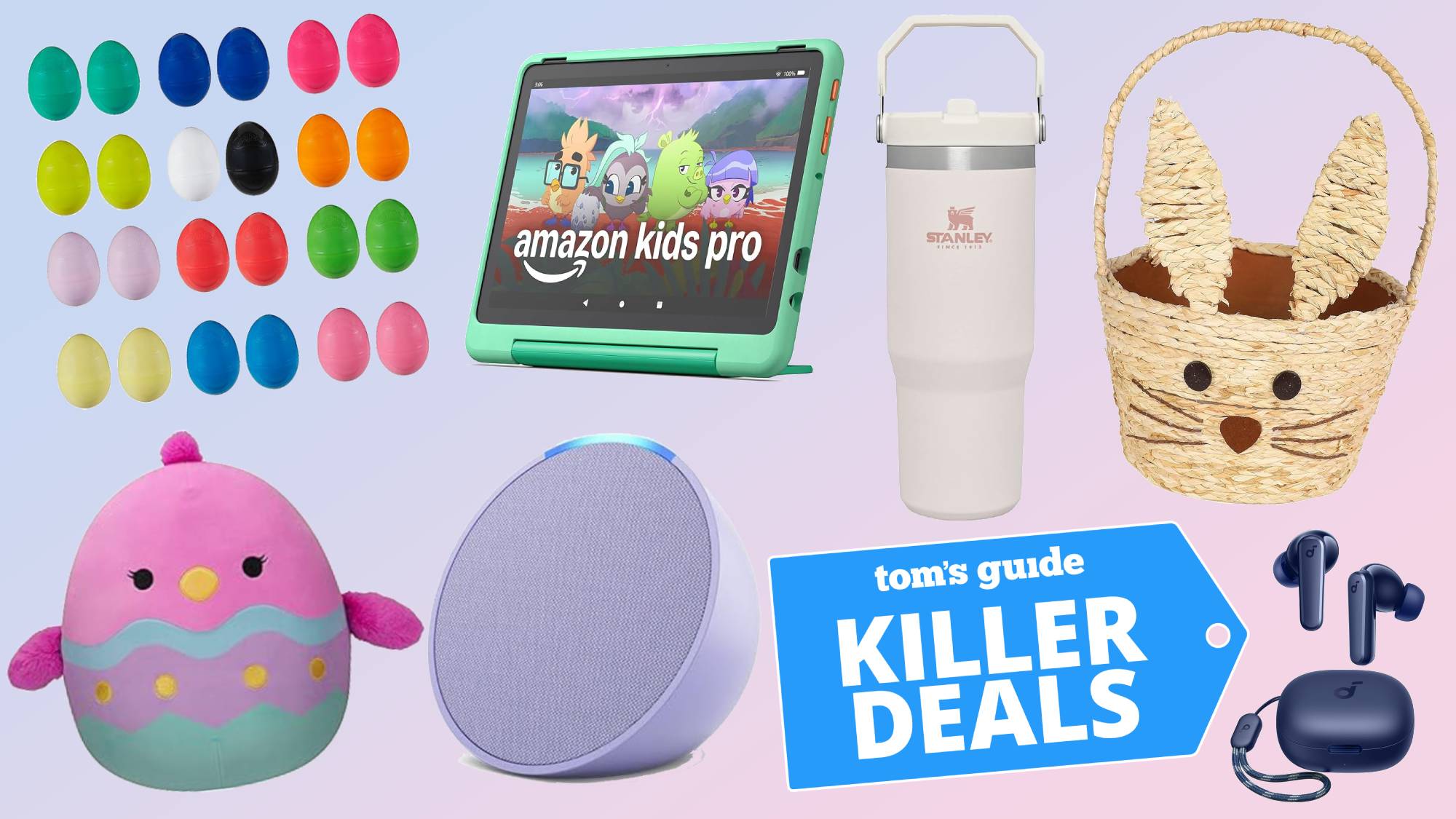Are Samsung's QLED TVs worth it?
Samsung QLED TVs are some of the most popular on the market, but are they a smart buy for your next TV?
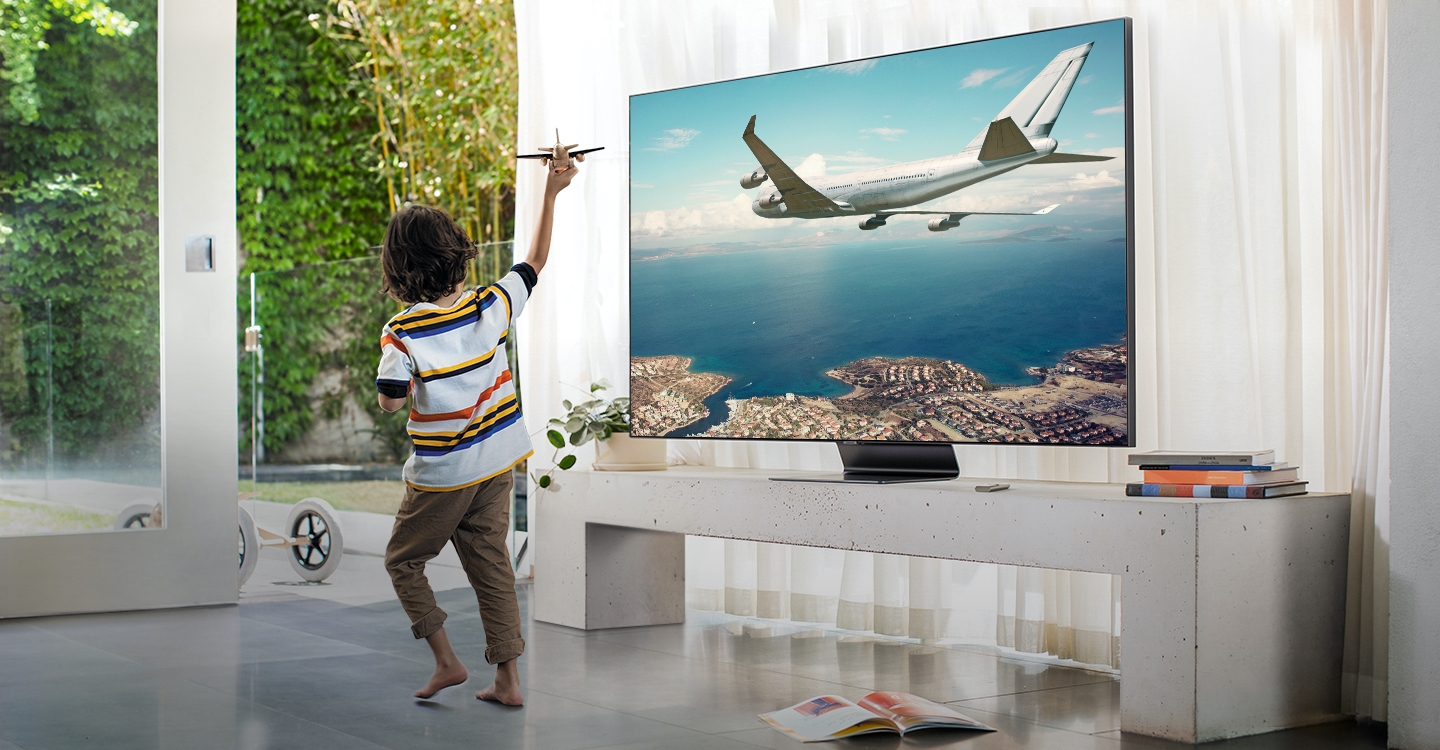
Are Samsung QLED TVs worth the price? With models ranging from budget-friendly to budget-busting, there's a wide assortment of TVs that fall under the umbrella of Samsung QLED TVs.
Anyone shopping for a TV will experience a bit of jargon fatigue as you look at brands like Samsung and LG and Sony, and try to parse technical terms like QLED and OLED and HDR.
- Check out the best TVs of the year
- Our TV buying guide tells you what you need to know
- Plus: Amazon Fire TV Stick Lite just leaked — watch out, Chromecast
What is QLED?
First, let's clear up one common point of confusion. QLED and OLED are not the same thing, but refer to two competing technologies for TV displays. For an in-depth discussion of how the two technologies differ, check out our QLED vs. OLED comparison.
Samsung's QLED TVs rely on a specific technology, called quantum dots, to enhance the color and brightness of traditional LCD TVs. QLED stands for Quantum dot and LED backlight.
Quantum dots are nano-scale crystals that respond to light by glowing with light of their own. A layer of these quantum dots is added to the sandwiched stack that makes up an LCD display, fitting between the backlight and the LCD panel to boost the brightness and color output of the TV.
Every Samsung TV that bears the QLED name uses these quantum dots to offer much better picture quality than an LCD panel alone could provide, but at its heart, QLED TVs are standard LCD sets with quantum dot enhancement to eke out better performance than a standard LCD TV alone. Don't let your local salesman tell you otherwise.
What we like about Samsung QLED TVs
When considering Samsung over any other smart TV brand on the market there are three primary reasons to make Samsung your top choice.
Sign up to get the BEST of Tom's Guide direct to your inbox.
Get instant access to breaking news, the hottest reviews, great deals and helpful tips.
First, Samsung's QLED technology provides some of the best color and brightness performance available on an LCD TV. Even as QLED technology has proliferated out to other manufacturers – with quantum dot technology seen on sets from TCL, Vizio and Hisense this year – Samsung is still the market leader for QLED products.
Samsung's leadership in QLED technology is well earned, and Samsung's QLED TVs provide the best alternatives on the market to more expensive OLED TVs. While OLED delivers better performance in many respects – offering pixel-perfect lighting control and perfect blacks – the technology still commands a premium price, and Samsung's refinements of the technology have narrowed the gap considerably in recent years. And, it's worth noting, that when it comes to overall brightness and vibrancy of colors, quantum-dot enhanced LCD panels beat OLED most of the time.
The second key selling point for Samsung's QLED TVs is the Tizen smart TV operating system. Samsung's proprietary smart TV platform may have a funky name, but it boasts one of the most polished smart TV experiences available, from the refined interface, to the integration of smart home controls and premium features like ambient mode. The latest Samsung TVs have also improved the voice interaction aspects, bolstering the lackluster Bixby assistant with support for Amazon Alexa and the ability to connect to Amazon and Google smart speakers.
Last, but not least, if you're interested in 8K television, Samsung's 8K QLED line offers the widest selection of models and prices. Samsung's 2020 TV lineup has reshuffled the 8K TV from being an outlier ultra-premium product to taking the spotlight as Samsung's premiere flagship models. But while some 8K sets still cost several thousand dollars, Samsung is providing 8K televisions that will fit into homes and budgets far better than the large and expensive premium 8K sets offered by other manufacturers.
What we don't like about Samsung QLED TVs
While we generally like Samsung's QLED TVs, and QLED technology is a significant improvement over standard LCD panels, it does have some drawbacks.
The first is backlighting. While many of Samsung's QLED TVs offer fairly refined backlighting, with full array backlights made up of dozens of discrete dimmable zones, there will still be some discernable blooming and haloing in high-contrast scenes, and the competing OLED technology has none. It's not a huge difference, but for the sharp-eyed and detail-focused cinephile, it's a problem.
And some QLED sets don't even offer dimmable backlighting zones, opting instead for edge lighting, which reduces a TV's HDR capabilities and is far less impressive than even the worst full array, local dimming (FALD) backlight.
The other big issue is price. Samsung's QLED TVs tend to sell at premium prices, in line with the best models from LG and Sony. But as other TV manufacturers offer QLED technology at more affordable prices, that premium price is harder to accept.
Should I buy a Samsung QLED TV?
Generally speaking, if you're in the market for a TV, Samsung's QLED TVs are a good choice, and provide decent value for the money. The technology is not only well-established as a substantial improvement over standard LCD TVs, Samsung has also been refining the technology and integrating it with other display optimizations for years, and offers the best in-breed even as QLED technology shows up on 4K sets from competing brands.
Look out for Samsung's cheaper sets, though. The Samsung Q60T in particular is an affordable-ish QLED that doesn't deliver the full value that QLED can offer. It's worth ponying up the extra for the Q70T – it's not much more, but it is that much better.
But, aside from Samsung's budget-play Q60T, we've been impressed with pretty much every Samsung QLED set we've seen and reviewed.
Our favorite Samsung QLED TVs
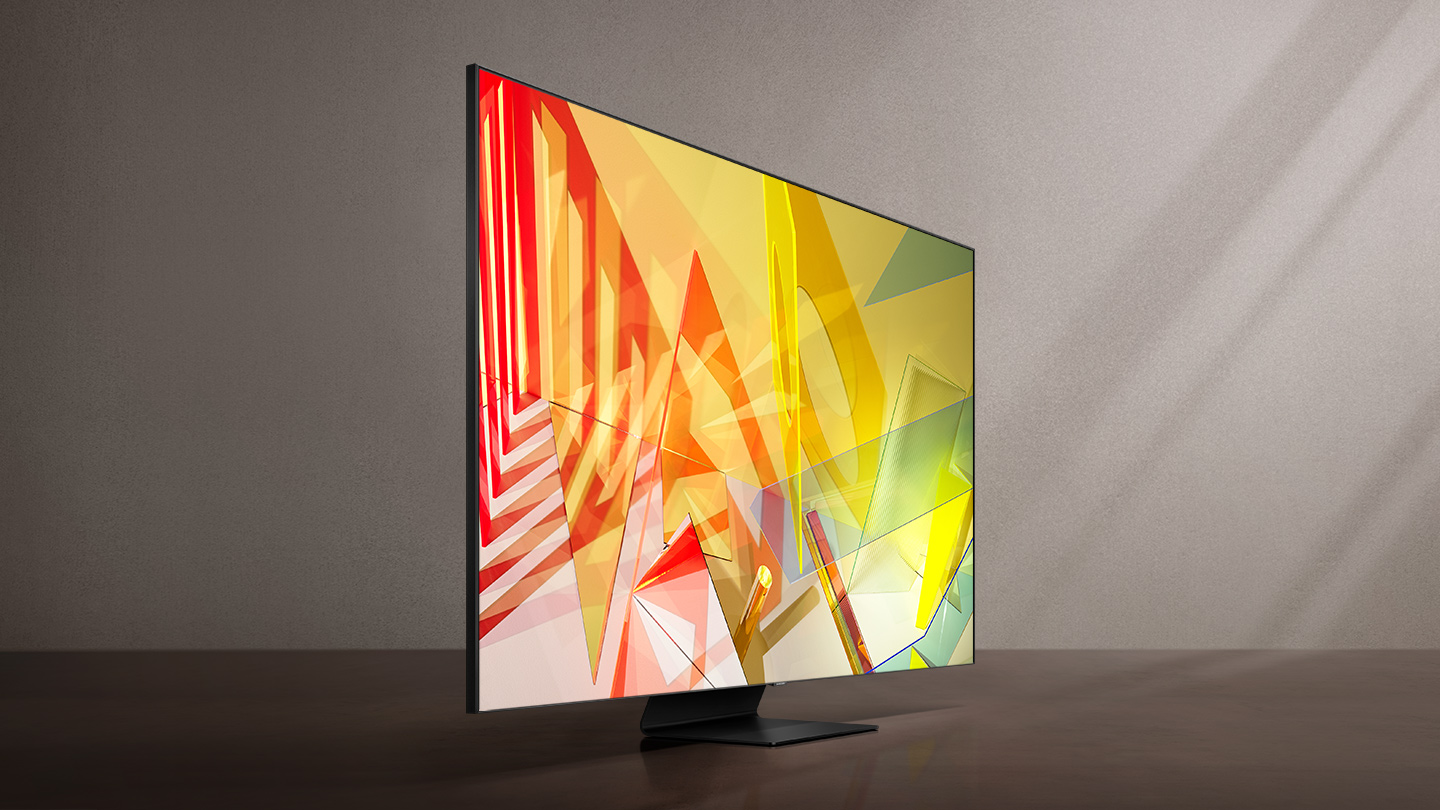
Best 4K QLED TV: Samsung Q90T
Specifications
Reasons to buy
Reasons to avoid
If you want the best 4K QLED set available, the Samsung Q90T is the set to get. This is Samsung's top 4K smart TV, and until 8K sets started taking the spotlight, was rightly considered the crown jewel of Samsung's TV line. While higher resolution models have arrived, there's no denying that the Q90T is still the best 4K set you can get from Samsung. The quantum-dot-enhanced display offers every spec we recommend, from 100 discrete backlight dimming zones and 120Hz refresh rate to ultra-wide viewing angles and Object Tracking sound, which provides a more immersive audio experience.
It also gets every premium design touch in Samsung's arsenal, from the zero-bezel frame to the OneConnect Box, which consolidates all of the set's connections and ports into a separate box, connected to the TV by a single, slim, nearly transparent cable that carries power and signal for any connected devices, from game consoles and Blu-ray players to satellite boxes and TV antennas.
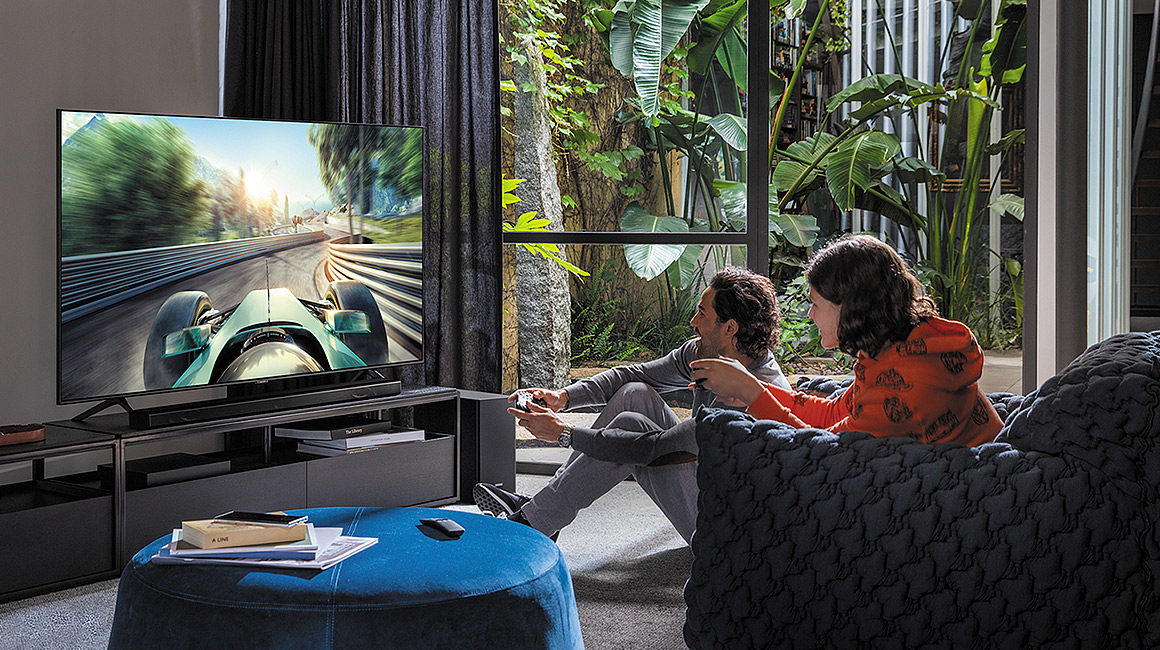
Best 4K QLED value: Samsung Q70T
Specifications
Reasons to buy
Reasons to avoid
For a more budget-friendly QLED option, we also like the Samsung Q70T, which starts at less than $1,000 for the 55-inch model. While it uses edge lighting instead of the discrete dimming zones of the more expensive Q90T, the Q70T QLED TV is outfitted with Samsung's new Dual LED technology, which adjusts the color tone of the backlighting to better match the onscreen content.
The Q70T also boasts the majority of Samsung's awesome smart TV capabilities, including voice interaction with Bixby and Amazon Alexa, as well as the full ecosystem of apps and smart home compatible control features.
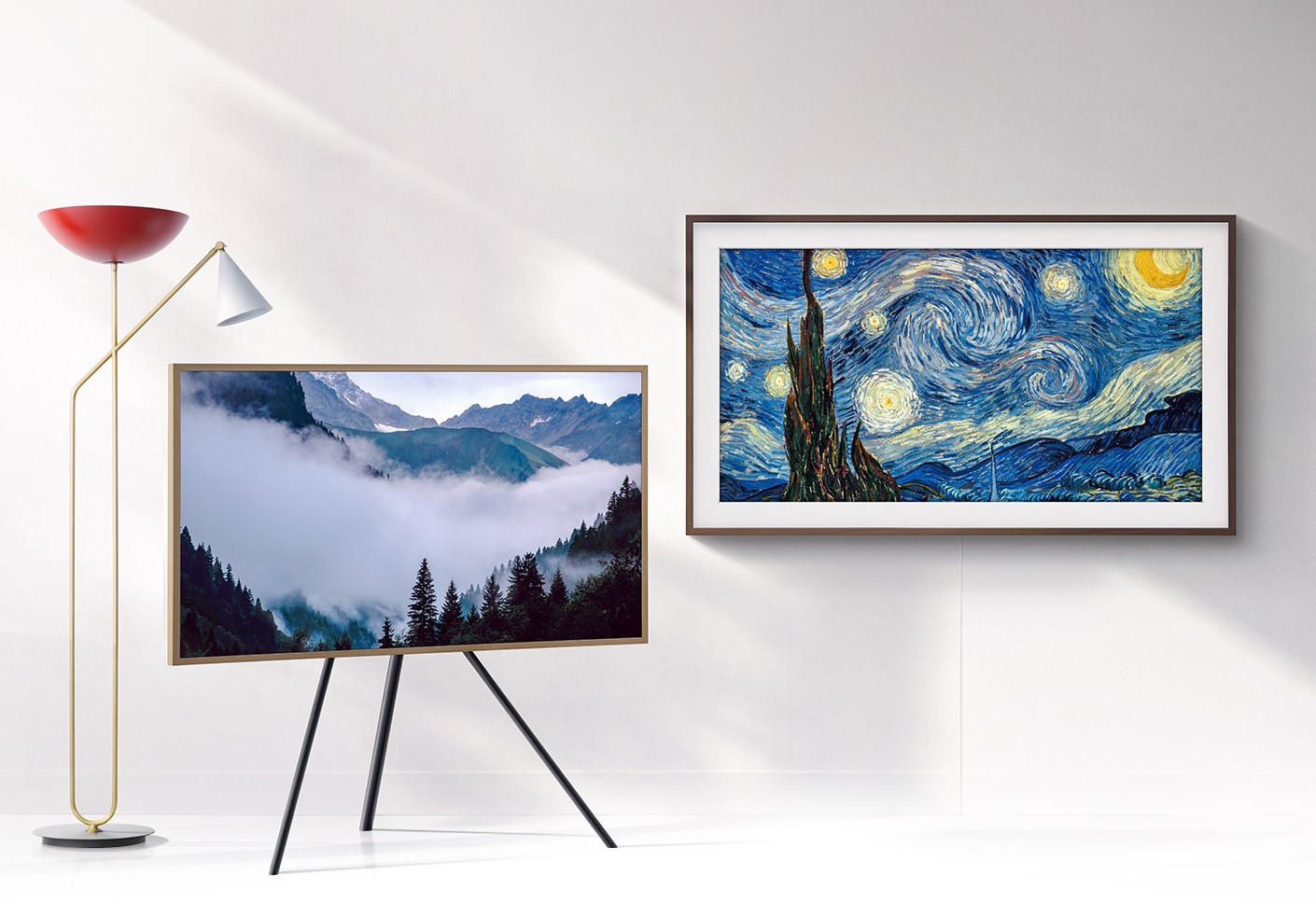
Most stylish 4K QLED TV: Samsung The Frame
Specifications
Reasons to buy
Reasons to avoid
If you want an excellent 4K TV that gives you QLED quality without the look and feel of a traditional TV, there's nothing out there quite like The Frame. Taking design cues from fine art (or maybe Mr. Roger's Picture Picture), The Frame is a full-featured 4K smart TV in a design so slim that it can hang on the wall like art.
Unique to The Frame is Art Mode 3.0, which lets you select your favorite artwork from thousands of collections from galleries across the globe. These high-resolution images are optimized for the unique TV presentation style, and the new 3.0 release includes an AI-driven automatic selection mode, which looks at your favorites and cycles through other art it thinks you'll like.
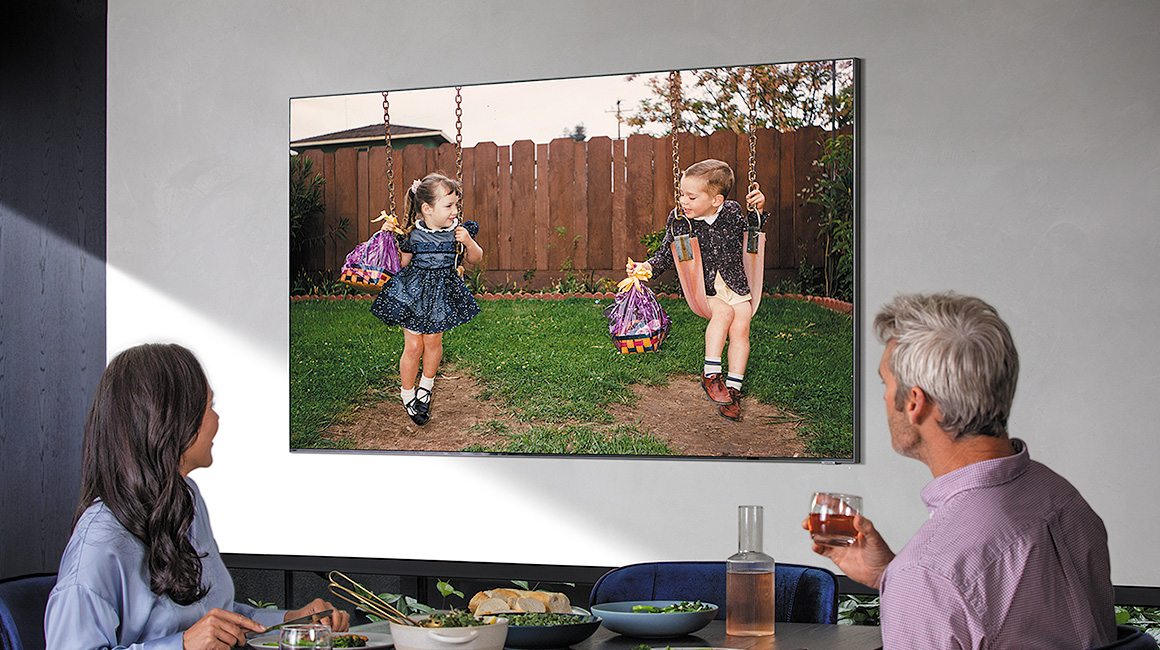
Most affordable Samsung QLED 8K TV: Samsung Q800T
Specifications
Reasons to buy
Reasons to avoid
If you want to gear up for the inevitable 8K revolution, the most affordable option available to US shoppers is the Samsung Q800T 8K QLED TV. Available in sizes ranging from 65 inches up to 82 inches, the range of sizes and prices make the Q800T the most approachable 8K option on the market.
And pretty much every feature offered on Samsung's 8K sets is available on the Q800T, from the high-powered Quantum Processor 2.0 8K with Deep Learning Super Resolution upscaling to a full array, local dimming (FALD) backlight and Samsung's Object Tracking Sound+. It's an incredibly premium TV, available at a fairly reasonable price.
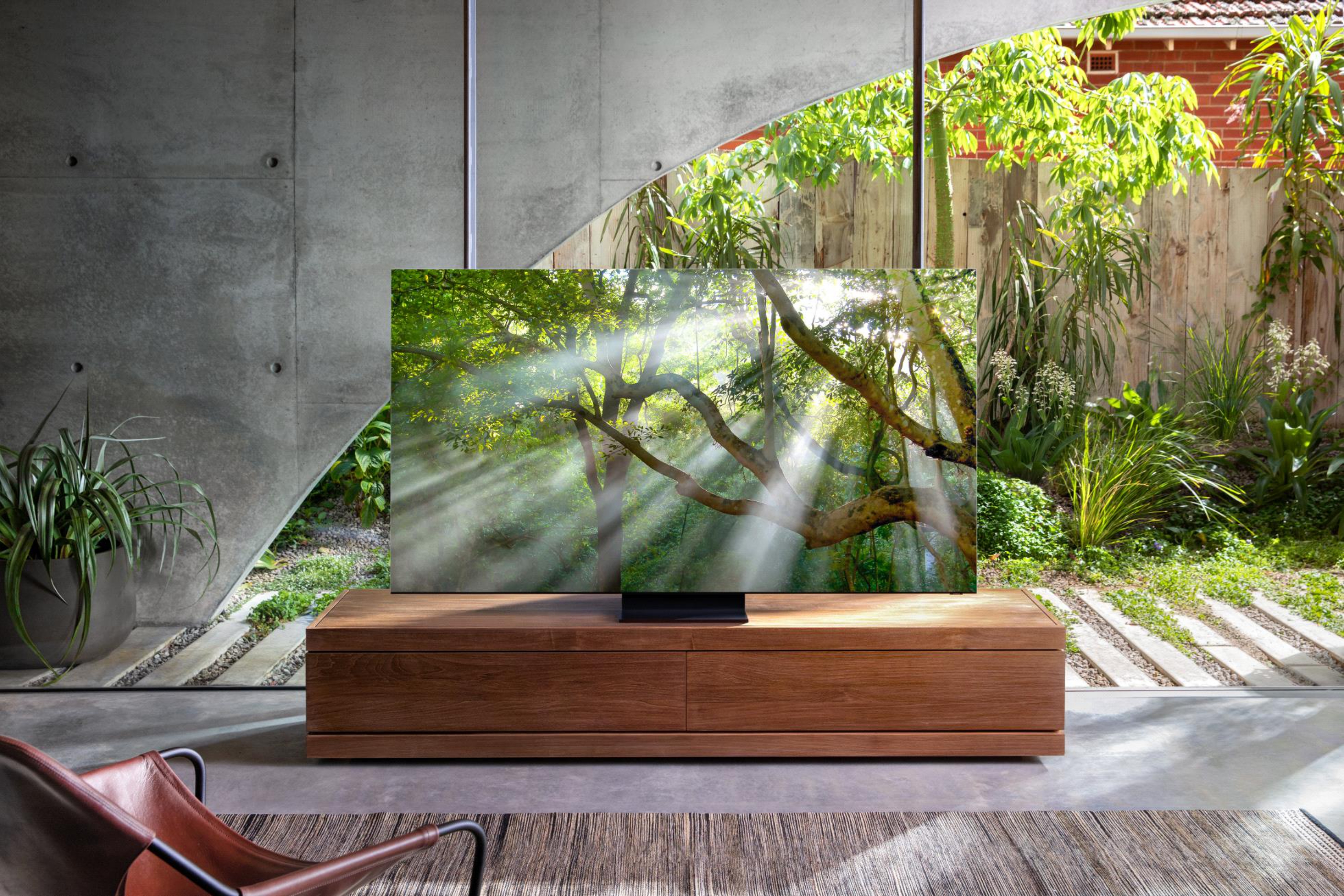
Best 8K QLED TV: Samsung Q950TS
Specifications
Reasons to buy
Reasons to avoid
The best TV in Samsung's QLED family is the Samsung Q950TS 8K QLED TV, which does way more than just deliver crisp, eye-popping 8K resolution. With a slim chassis, nearly bezel-free frameless design and impressive multi-speaker audio, the Q950 brings every other aspect of the TV inline with the stunning display quality, all in a truly premium package.
The Q950TS has Samsung's Infinity Screen, surrounding the frameless QLED panel with almost no bezel at all, and what border is there should be difficult to even spot at normal viewing distances. It also has Samsung's new Object Tracking Sound+, which combines several internal speakers positioned above, below and to either side of the display to create a 5.1-channel soundscape that actually tracks with objects and actors on screen.
But, this is quality that you will definitely pay for. The best 8K QLED set you can buy is currently only offered in an 85-inch screen size, and it costs a whopping $12,999. While there are more expensive 8K sets on the market, nobody is buying the 8K Samsung Q950TS and telling themselves it's not much more than a premium 4K set.
Brian Westover is currently Lead Analyst, PCs and Hardware at PCMag. Until recently, however, he was Senior Editor at Tom's Guide, where he led the site's TV coverage for several years, reviewing scores of sets and writing about everything from 8K to HDR to HDMI 2.1. He also put his computing knowledge to good use by reviewing many PCs and Mac devices, and also led our router and home networking coverage. Prior to joining Tom's Guide, he wrote for TopTenReviews and PCMag.

